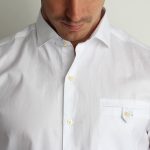Overview of Sustainable Fabrics
Sustainable fabrics are eco-friendly materials crafted to minimize environmental impact throughout their lifecycle. These materials play a crucial role in reducing the carbon footprint of the textile industry, significantly contributing to environmental preservation. By opting for these fabrics in products such as workout clothes, consumers support a shift towards more sustainable production methods.
One primary importance of sustainable fabrics is their ability to lessen pollution and waste. Through responsible sourcing and production techniques, these materials reduce the strain on resources and help maintain ecological balance. This attribute is especially significant in the realm of workout gear, where the demand for durable and functional materials is high.
Additional reading : Best Breathable Fabrics to Stay Cool in a British Heatwave
Common sustainable materials for workout clothes include organic cotton, recycled polyester, and Tencel or Modal. These materials offer viable alternatives to traditional, environmentally taxing fabrics. For instance, organic cotton avoids harmful pesticides, while recycled polyester repurposes plastic waste, crafting it into robust and breathable garments. Tencel and Modal, derived from wood pulp, are lauded for their softness and excellent moisture-wicking properties, making them ideal for activewear.
The adoption of sustainable fabrics in everyday clothing, especially in activewear, represents a vital step towards fostering an environmentally conscious lifestyle.
Also read : Revolutionary Textile Innovations Shaping the Future of Women’s Fashion in the UK
Benefits of Using Sustainable Fabrics in Workouts
Choosing sustainable fabrics for workout gear not only helps the environment but also enhances workout experiences. These eco-friendly materials are designed for performance, offering enhanced comfort and breathability. Unlike conventional fabrics, many sustainable options are softer on the skin, ensuring athletes and fitness enthusiasts stay comfortable during intense workouts.
One of the primary advantages of sustainable workout apparel is its durability and longevity. Sustainable fabrics are often more robust, meaning your workout gear lasts longer, reducing the need to frequently replace your clothing. This longevity not only saves money in the long run but also contributes to minimizing waste, aligning with eco-friendly principles.
Environmentally, the impact of choosing these materials is significant. By opting for sustainable options, the carbon footprint of production processes is reduced. This reduction is crucial for long-term sustainability and lessening the environmental load of textile industries.
Ultimately, investing in sustainable workout clothes is a positive step towards sustainability and environmental health. By choosing sustainable options, consumers lead with positive change, encouraging brands to adopt eco-friendly practices. This shift supports a more substantial, conscientious approach to fashion, emphasizing the importance of protecting our planet while staying active.
Common Sustainable Fabrics for Workout Clothes
Sustainable fabrics offer exciting alternatives to traditional materials used in workout clothes. They minimize environmental harm and enhance the functionality and sustainability of activewear. Let’s explore some prevalent options.
Organic Cotton
Organic cotton is renowned for its skin-friendly properties, as it’s cultivated without synthetic fertilizers or harmful pesticides. Its soft and breathable nature makes it an ideal choice for workout clothing, ensuring comfort during intense activities. Several popular brands, like Patagonia and Nike, incorporate organic cotton in their eco-friendly lines, promoting a shift towards sustainable practices.
Recycled Polyester
Recycled polyester is manufactured from repurposed plastic waste, significantly reducing landfill burden. Its durability and moisture-wicking capabilities make it excellent for athletic wear, offering robust performance similar to conventional polyester but with a reduced environmental footprint. Unlike new polyester, recycled versions prevent approximately 50% of carbon emissions, highlighting their eco-friendly appeal.
Tencel and Modal
Tencel and Modal, derived from sustainably sourced wood pulp, are valued for their exceptional breathability and moisture-wicking qualities. These fabrics help keep the body cool and dry, making them ideal for gym outings. Brands like Lululemon and Stella McCartney champion Tencel and Modal, integrating them into stylish, sustainable collections. Their softness and durability enhance comfort, marking a vital evolution in workout apparel.
Sourcing Sustainable Fabrics in the UK
Sourcing sustainable fabrics in the UK is increasingly essential for consumers committed to environmental responsibility. The country hosts a growing number of UK-based sustainable fabric suppliers who prioritise transparent and ethical practices in providing eco-friendly materials. These suppliers focus on using resources wisely, with minimal environmental impact throughout their lifecycle, catering to brands and individuals seeking sustainable fabrics for workout gear.
When considering ethical brands offering eco-friendly activewear, look for those that provide detailed information on their sourcing methods. Brands like BAM and Thought are commendable for openly communicating the origins of their materials, their production processes, and their sustainable missions. Transparency not only builds trust but encourages industry-wide accountability.
Furthermore, supporting local sourcing helps reduce carbon footprints associated with transportation. The concept of ‘buying local’ is pivotal for minimising carbon emissions and supporting the local economy. Ethical sourcing ensures that consumers engage with products crafted responsibly, foster sustainability, and promote ethical labour practices.
In conclusion, choosing sustainable fabrics through UK-based suppliers and ethical brands is a critical step toward creating a more sustainable fashion ecosystem, encouraging a greener future through both individual and collective consumer decisions.
Practical Tips for Choosing Eco-Friendly Workout Clothes
Selecting the right eco-friendly workout clothes involves careful consideration of fabric quality and sustainability credentials. First, look for certifications and labeling that validate the eco-friendliness of materials, such as GOTS (Global Organic Textile Standard) or Oeko-Tex standards. These certifications ensure that the production processes meet environmental and ethical standards.
When evaluating workout apparel, consider the lifecycle of the garment. Opt for products made from sustainable fabrics like organic cotton and recycled polyester. These materials not only reduce environmental impact but also offer excellent performance in terms of comfort and durability.
Assess the garment’s attributes to ensure functionality and sustainability. Check for features like breathability, moisture-wicking, and comfort, which enhance workout performance while maintaining eco-credentials. It’s vital to lean towards versatile designs that cater to your specific workout needs and can withstand long-term use.
Finally, explore brands that are dedicated to transparency in their supply chain. Brands that clearly disclose their sourcing and production processes often share a commitment to sustainability. This transparency builds consumer trust and encourages other companies to adopt similar practices, advancing the growth of eco-friendly fashion in the activewear domain.
Care and Maintenance of Eco-Friendly Clothing
Proper care and maintenance of eco-friendly clothing are crucial for extending the life of your garments and preserving their quality. By following sustainable clothing care practices, you can ensure that fabrics maintain their durability and performance over time.
Washing and Drying: To protect the integrity of sustainable fabrics, wash clothes with cold water. This method not only saves energy but also prevents the fibers from breaking down. When drying, consider air drying over tumble drying to avoid exposing the materials to excessive heat, which can wear them out prematurely.
Detergents: Choose detergents that are free from harmful chemicals or manufactured specifically for natural and eco-friendly clothing. These options are gentler on both fabrics and the environment. Harsh chemicals can degrade fibers and reduce the lifespan of your activewear.
Repairing garments instead of discarding them can contribute significantly to sustainability. Simple methods include sewing small tears or replacing buttons, which helps keep your clothes in circulation for longer.
Finally, when your clothes reach the end of their life, explore recycling programs or donation options. Many sustainable brands offer initiatives to responsibly manage clothing waste. Implementing these care strategies supports an eco-conscious lifestyle and prolonged garment maintenance.
Recommended Brands and Retailers in the UK
Navigating the realm of sustainable workout gear can be daunting, but the UK is home to numerous sustainable brands that deliver eco-friendly apparel without compromising style or functionality. These brands prioritize minimal environmental impact while providing high-quality workout clothing.
-
Bam: Known for its bamboo-based fabrics, Bam excels in creating soft, durable clothing that caters to an active lifestyle. Their pieces ensure comfort and performance while promoting sustainability.
-
Thought: This brand integrates organic and recycled materials into its collections. Thought’s ethical practices are transparent, reflecting their commitment to sustainable production and ecological responsibility.
-
Lululemon: Offering collections featuring Tencel and Modal, Lululemon balances breathability and style in their eco-conscious designs, making them ideal for both gym and casual wear.
Customer reviews reveal an appreciation for the durability and comfort of these brands’ offerings, often highlighting their commitment to responsible sourcing and ecological mindfulness. The emphasis on sustainable processes resonates with consumers, encouraging a broader industry shift towards eco-friendly materials.
For those exploring sustainable options, these UK retailers provide a thoughtful, curated selection of workout gear, supporting both personal health and the planet.



